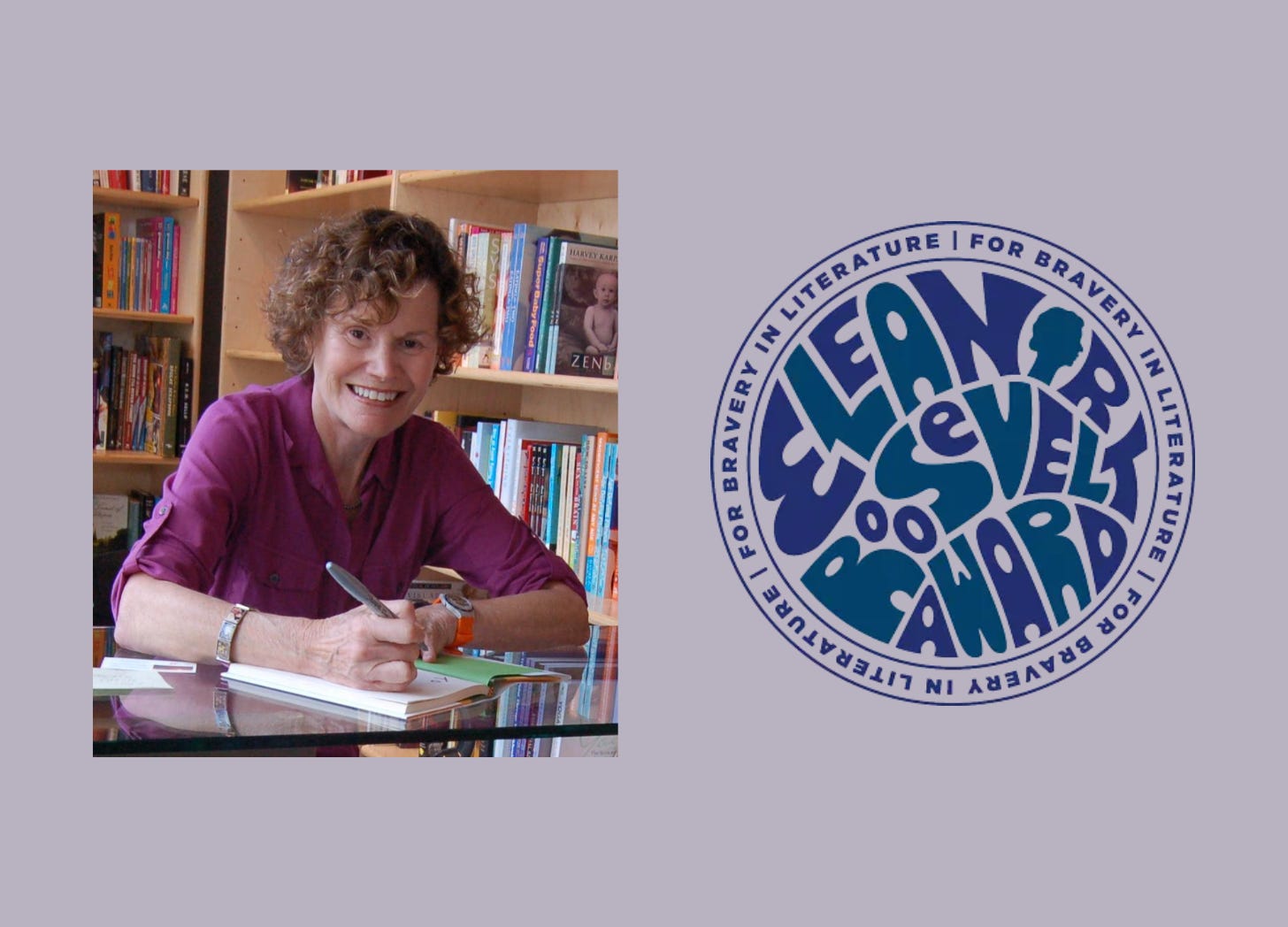Eleanor Roosevelt Award Recognizes Banned Authors for ‘Bravery in Literature’
Ceremony honors author Judy Blume with lifetime achievement.

Anna Eleanor Fierst knows exactly how important the written word was to her great-grandmother, Eleanor Roosevelt. Her childhood memories of the former first lady impressing upon her grandchildren and great-grandchildren the value of books—in literacy and learning about a world outside of one’s own—came in the form of a book-of-the-month club.
At the time, it was called the Junior Literary Guild and the end result was Fierst, as a child, receiving a book every month from her great-grandmother.
“It’s a passion I think that exists in the family,” Fierst says, adding that her mother, Eleanor Roosevelt Seagraves, was a librarian. “And making sure we became early readers. Read a lot…



